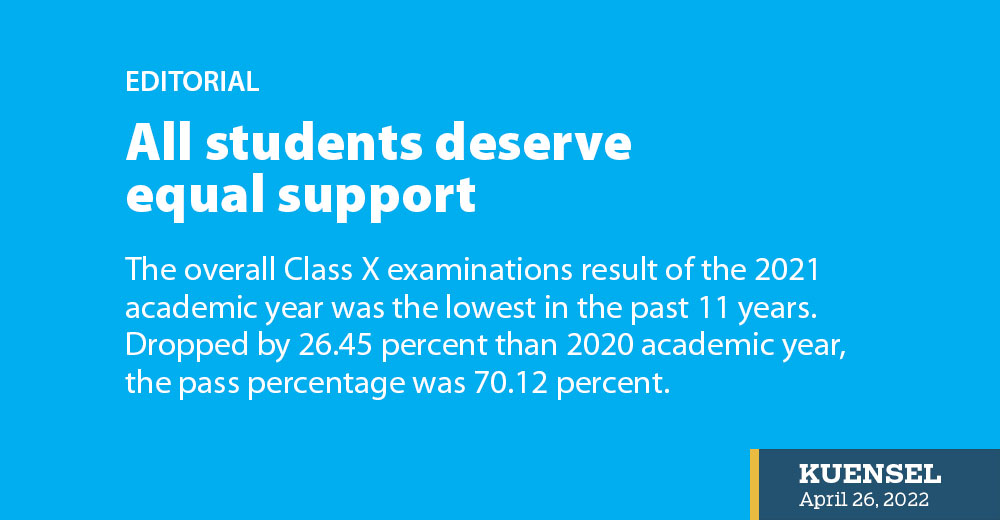The overall Class X examinations result of the 2021 academic year was the lowest in the past 11 years. Dropped by 26.45 percent than 2020 academic year, the pass percentage was 70.12 percent.
Education officials attributed the decrease in the pass percentage to the new assessment criteria that required students to score 40 percent in both continuous assessment and examination to pass each subject. They also said the questions and curriculum last year were competency-based.
Besides the change in the assessment criteria, the pandemic also played a role. It not only disrupted their classes, but also their examination schedule. Most of the students were either tested positive for Covid-19 or were primary and secondary contacts when they sat for the exam. So making through the academic year, with or without the desired percentage, should be considered a success.
Unlike in the past, where class 10 examination result could change many students’ fate, student can now repeat in the same class or be absorbed in government or private schools on government scholarship.
This is not to set any complacency among students, but to encourage the 3,749 students, who could not get through the examination, to return to schools or seek other vocational training.
While all schools share photos of their academic toppers, it is equally important to understand the problems of students who failed and render them support.
Initially, the board examination is to screen students from high school. It helps maintain academic uniformity throughout the country and acts as a checkpoint for schools, teachers and students now.
With the system of examination considered obsolete in advanced countries, the new assessment criteria is welcome. We have always questioned the accuracy of evaluating students based on a single examination. Many believe that a single examination at the end of an academic year is not an accurate evaluation of a student.
Our education system is evolving and efforts are being made to make it relevant.
Although we could not adopt a national education policy, 17 textbooks were revised last year besides the new normal curriculum frameworks and new assessment system. Financial literacy was included in many schools.
Information, Communications and Technology (ICT) labs were established in many schools. Desktops and laptops were distributed. His Majesty The King’s gift to the children of Bhutan, The CodeMonkey, is helping students develop scientific curiosity.
Many educationists are pinning hope on the Royal Kasho that commanded the establishment of a time-bound Council for Education Reform to prepare a visionary and workable roadmap for education and Bhutan Baccalaureate system.
It is also time we invest in education where students find solutions to local problems. Our real strengths lie in education and innovation.


